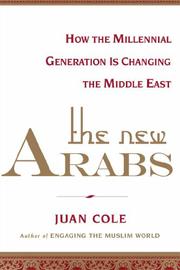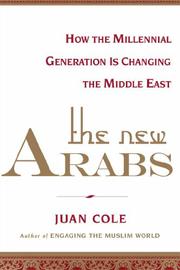By Amr Kotb
This conversation about the political situation in Egypt provides a good example of the generational gap numerous young Egyptians are struggeling with.
My mother and I have been arguing over the past ten months.
Since August of last summer, she – an ardent supporter of the January 25 revolution – has been telling me that the government’s violations of human rights and civil liberties are necessary for Egypt to “get back on its feet” and that while Abdel Fattah El Sisi may not be Egypt’s best option, he is the only option, so we have to put our faith in him.
Since last summer I have periodically combated her position with mournful reminders of imprisoned journalists and activists, dead students and their weeping mothers, and a uniform media narrative. Over the past ten months, I have lived with a comfortable disquiet alongside her position. Both of us choosing to avoid the topic until the most recent imprisonment, death, or verdict pushed us into a short but heated discussion that would inevitably die down after a few minutes depending on who was more concerned about preserving our relationship at the given moment.
But on Monday 24 June, I had enough. Detained since last summer, Al Jazeera journalists had finally received their sentence: seven years in prison. This was on the heels of the verdict which had just sent revolutionary activist, Alaa Abdel Fattah, to serve a 15 year prison sentence on charges of illegal protest and attacking a police officer.
My mother, who currently resides in the US, and I traded barbs over google chat until 4:30 in the morning. This time I was not backing down; I had to get to the bottom of why – after all of this- she still supported Egypt’s former army chief.
Smarter dissent
“Amr, I of course am greatly saddened by the mass arrests of students, academics, journalists and activists, and I do not support what is happening to them.”
“Okay mom, so if that is the case, why support the de-facto ruler that has supervised their detention and even death in some instances? What if I had been born and raised in Egypt and I was a student at Al Azhar who had been shot dead during a demonstration? Or what if I was a member of the April 6 movement? Or what if I was just a journalist imprisoned for covering an event? Wouldn’t you, as my mother, feel a little differently about this government?”
“Well yes, of course I would. However, demonstrators need to rethink their actions, they have to realize that this is not the time for protest, it is the time to organize a party, get into politics, and participate in community service activities as a means to bring about change.”
“Yes mom, in the current environment that is a more effective means, but that does not mean that their supposedly poor decision-making legitimates the government’s response. I feel like you are putting the blame on the protesters the same way others put the blame of sexual harassment on what a woman is wearing and I know you dsagree with that.”
“I am totally against jailing or killing those who hold different opinions.”
“So why are you supporting Sisi while saying its protester’s job to change their approach? The least I can do is not support him.”
“So what will you do, Amr? How would you change things?
“If it was me I would focus on exactly what you said. I would avoid protesting and regroup to focus on community service and building a political party. However, at the same time, I would not support someone who responds brutally to demonstrators or deprives them of their basic rights. Wise or unwise, it is still their right. I would support any kind of legitimate opposition’s activities.”
We have to sacrifice
“Amr, we have to forgo these rights at this point in time if Sisi’s government is going to clean the streets, make them safe again, and allow the country to advance.” She went on to argue that Egypt does not have to be a free country, drawing upon examples such as Iran, “it just has to be an advanced country with a strong economy.”
I pressed her on this: “Mom, you know that it is not one or the other. Fine, Iran is more advanced and cleaner and Saudi and Kuwait are the same, but why should Egyptians be barred from dreaming for both? Or believing that they are not mutually exclusive? Is that not what the January 25 revolution that you so strongly supported was all about? There is still plenty of turmoil in supposed advanced authoritarian states, there are protests in Kuwait all the time and you know what happened in Iran in 2009.”
We went back and forth on this for nearly half an hour. I asked my mother why she felt she had to forgo civil liberties for national advancement. I recalled that Egyptian leadership – whether at the time of the 1919 revolution and Hoda Shaarawi’s quest for women’s rights or now with its justification for the demonstration law and military trials for civilians – has a history of asking citizens to put aside their fight for human rights as a way to ‘sacrifice for the well-being of the nation.’ Where is this long-promised well-being? Where are the fruits of almost 100 years of sacrifice? Why can’t we pursue the basic rights all human beings are entitled to as part of the nation’s agenda to be great? “
I knew we had reached the essence of this issue because her response shocked me: “The government will never change; no human rights, no freedom to Egyptians or non-Egyptians. They control television and movies. They have to have authority to change the situation and for people to follow them. This current leadership is the only option we have for Egypt to advance as a nation.”
Thus in my mother’s eyes, maybe it was not a sacrifice, maybe personal freedoms and civil liberties were a lost cause to her and for lack of another option it was better to throw support behind the only authority available that had the power to make the country better, and to her that was the former general.
The only option?
“But mom, Sisi’s government only has you thinking they are the only option because they used their deeply entrenched authority to present themselves this way” I pleaded. I added that even if I disagreed with Sisi’s deposal of Mohamed Morsi on 3 July, it is a separate issue from the fact that there actually was a multi-party coalition willing to cooperate with him at the time of Morsi’s ouster. Little by little members of this coalition who held a different vision for the country were sidelined through imprisonment or their own resignation. This is how Sisi was able to present himself to Egypt as “the only option.” There was nothing that made it mandatory for the former army chief to disregard formal, civilized, and peaceful opposition, in fact he could have accomplished his stated goals and carried out the roadmap with much greater ease and less internal strife had he worked with the coalition instead of co-opting, alienating, and sidelining its membership.
I felt that maybe I had reached her with this, finishing my rant with a final question “If he really loved Egypt and wanted it to progress why would he push all forms of perceived opposition – even a satirical television programme – out and supervise his transformation from Morsi’s ouster into Egypt’s president? Do you feel like “answering the will of the people” is really why he did this?
She paused for a long time.
“I will give him one year.”
About the author
Amr Kotb is a freelance journalist located in Cairo. Follow him on twitter @AmrQotb
Mirrored from Open Democracy
This article is published under a Creative Commons Attribution-NonCommercial 3.0 licence.
——-
Related book:
The New Arabs: How the Millennial Generation is Changing the Middle East




 © 2025 All Rights Reserved
© 2025 All Rights Reserved